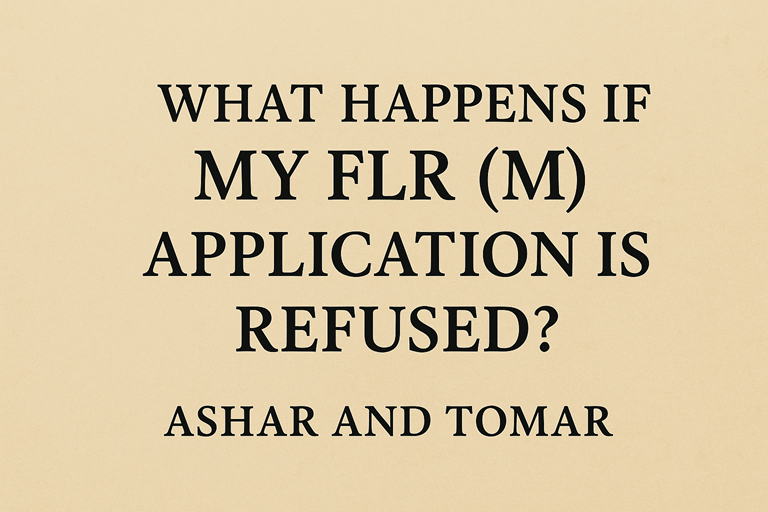- Damages/Compensation Claim Against Home Office UKVI
- UK Work Visas
- Innovator Visa UK
- Tier 1 Entrepreneur Visa UK
- Entry Clearance As Tier 1 Entrepreneur
- Switching Into Tier 1 Entrepreneur
- Tier 1 Entrepreneur Visa Extension
- ILR As Tier 1 Entrpreneur
- ILR As Tier 1 Entrepreneur (Accelerated Route)
- Administrative Review Against Refusal Of Tier 1 Entrepreneur Visa
- Dependants Of Tier 1 Entrepreneur Migrants
- Tier 1 Entrepreneur
- FAQs - Tier 1 Entrepreneur
- Start Up Visa UK
- Tier 1 Graduate Entrepreneur
- Tier 1 Exceptional Talent
- Entry Clearance As Tier 1 Exceptional Talent
- Switching Into Tier 1 Exceptional Talent
- Extension Of Stay As Tier 1 Exceptional Talent
- ILR As Tier 1 Exceptional Talent
- Administrative Review Against Refusal Of Tier 1 Exceptional Talent Visa
- Dependants Of Tier 1 Exceptional Talent Migrant
- FAQs - Tier 1 Exceptional Talent
- Tier 1 Investor Visa UK
- Tier 2 General
- Tier 2 Minister Of Religion
- Entry Clearance As Tier 2 Minister Of Religion
- Switching Into Tier 2 Minister Of Religion
- Tier 2 Minister Of Religion Visa Extension
- ILR - Tier 2 Minister of Religion
- Administrative Review Against Refusal Of Tier 2 Minister Of Religion Visa
- Dependants Of Tier 2 Minister Of Religion
- FAQs - Tier 2 Minister Of Religion
- Tier 2 Sports Person
- Tier 2 ICT
- Tier 5 Charity Workers
- Tier 5 Creative & Sporting
- Tier 5 Religious Workers
- Tier 5 Government Authorised Exchange
- Entry Clearance As Tier 5 Government Authorised Exchange Worker
- Switching Into Tier 5 Government Authorised Exchange
- Tier 5 Government Authorised Exchange Visa Extension
- Administrative Review Against Refusal Of Tier 5 Government Authorised Exchange Worker Visa
- PBS Dependants Of Tier 5 Government Authorised Exchange Worker
- Tier 5 Youth Mobility Scheme (YMS)
- Tier 5 International Agreement
- Entry Clearance As Tier 5 International Agreement Worker
- Switching Into Tier 5 International Agreement
- Tier 5 International Agreement Visa Extension
- ILR - Tier 5 International Agreement
- Administrative Review Against Refusal Of Tier 5 International Agreement Worker Visa
- Dependants Of Tier 5 International Agreement Worker
- UK Ancestry Visa
- Domestic Worker Visa
- Representatives Of Overseas Business
- Turkish ECAA Businessperson Visa
- Turkish ECAA Worker Visa
- Sponsor Licence Applications
- Tier 2 General Sponsor Licence
- Tier 2 Minister of Religion Sponsor Licence Application
- Tier 2 ICT Sponsor Licence
- Tier 2 Sportsperson Sponsor Licence
- Tier 5 Creative & Sporting Sponsor Licence
- Tier 5 Religious Workers Sponsor Licence
- Tier 5 Charity Workers Sponsor Licence
- Tier 5 International Agreement Sponsor Licence
- Tier 5 Government Authorised Exchange Sponsor Licence
- Tier 4 General Student Sponsor Licence
- Tier 4 Child Student Sponsor Licence
- Family of British Citizens & Settled Persons
- Fiance(e) Visa UK
- Proposed Civil Partner Visa UK
- UK Spouse Visa (5 Years Route)
- UK Spouse Visa (10 Years Route)
- Civil Partner Visa UK (5 Years Route)
- Civil Partner Visa (10 Years Route)
- Unmarried Partner Visa UK (5 Years Route)
- Unmarried Partner Visa UK (10 Years Route)
- Same Sex Partner Visa (5 Years Route)
- Same Sex Partner Visa (10 Years Route)
- ILR - Victim Of Domestic Violence
- ILR - Bereaved Partner
- Adult Dependent Relative Visa
- Parent Of British Or Settled Child
- Children Of British Citizens Or Settled Persons
- Adopted Children Of British Citizens Or Settled Persons
- Entry Clearance For Indefinite Leave to Enter As An Adopted Child Of British Citizen Or Settled Person
- ILR As An Adopted Child Of British Citizen Or Settled Person
- Entry Clearance For Limited Leave to Enter As An Adopted Child
- Application For Limited Leave to Remain As An Adopted Child
- Application For Entry Clearance For Limited Leave to Enter To Be Adopted In The UK
- Entry Clearance For Limited Leave To Enter To Be Adopted In The UK Under The Hague Convention
- 20 Years Long Residence
- 7 Years Child Residence Rule
- Over 18, Under 25 And Lived Half Of Life In The UK
- Initial Application As A Person WhO Is Over 18, Under 25 And Lived Half Of Live In The UK
- Initial Application As A Person WhO Is Over 18, Under 25 And Lived Half Of Live In The UK
- Extension/Renewal Of Leave Granted On The Basis Of Living Half Of Life In The UK
- ILR Under The Category Of Living Half Of Your Life In The UK
- Application Based On Very Significant Obstacles To Integration In Country Of Origin
- Naturalisation As A British Citizen
- Registration As British Citizen
- Registration Of Stateless Child As British Citizen
- UKM Application
- Registration As British Citizen By A Person Born Before 1 July 2006 To A British Father
- Registration Of A Child As British Citizen - MN1 Application
- MN1 Application - Registration As British Citizen On The Basis Of Either Parent Getting ILR After Child's Birth In The UK
- Registration Of A Child As British Citizen Who Was Born In The UK And Has Lived In The UK For 10 Years
- Registration Of Minors At Discretion Under Section 3(1)
- Registering Minors Born Outside the UK to British Citizens By Descent
- Registering Children Born Outside the UK To Members Of HM Forces
- Registration As British Citizen Under Section 4(2) Of BNA 1981
- Registration As British Citizen At Discretion (On Grounds Of Service) Under Section 4(5) Of BNA 1981
- Registration At Discretion (British Overseas Territories Citizens Only) Under Section 4A
- Registration As A British Citizen If You Had Previously Given Up British Citizenship
- Registration As British Citizen By British Subject
- Registration As British Citizen By British Protected Person
- Registration As British Citizen By BOC
- British Citizenship As BNO
- Registration As British Citizen Under The British Nationality (Hong Kong) Act 1997
- Registration As A British Citizen By BOTC
- Registration As A British Citizen By A BOTC With A Connection With Gibraltar
- Registration As A British Overseas Territories Citizen If You Had Previously Given Up Citizenship
- Registration As A British Citizen By A Stateless Person
- Application For Confirmation Of Nationality Status (NS)
- Reconsideration Of Naturalisation/Nationality Application
- Conditions British Citizenship
- UK Immigration
- Immigration Solicitors
- Immigration Lawyer
- Absence From the UK
- Applicants Married to British Citizen
- Applicants Unmarried to UK Citizen
- Can i Register a Child
- Eligibility (Right to Adobe)
- Employment Visa
- English Requirmement
- HSMP
- Marriage Visa
- Right Of Adobe
- Refused UK Visitor Visa? We Can Help You Challenge The Refusal Or Re-Applying After Refusal
- Business Visitor Visa UK
- Family Visitor Visa UK
- Child Visitor
- Entertainer Visitor Visa UK
- General Visitor Visa UK
- Parent Of A Child At School
- Prospective Entrepreneur Visa UK
- Sports Visitors Visa UK
- Student Visitor Visa UK
- UK Visa For PLAB Test
- Visitor For Marriage/Civil Partnership
- Visitor For Private Medical Treatment
- Visitor In Transit Visa UK
- Visitor Under Approved Destination Status (ADS) Agreement With China
- Visitors Undertaking Permitted Paid Engagements
- Applications On Discharge From HM Forces
- Partners of Members of HM Forces
- Entry Clearance As A Parnter Of A Member Of HM Forces
- Switching Into Leave To Remain As A Partner Of A Member Of HM Foreces
- Indefinite Leave To Enter As A Partner Of A Member Of HM Forces
- ILR As A Partner Of Member Of HM Forces
- Entry Clearance For Indefinite Leave To Enter (ILE) As A Bereaved Partner Of A Member Of HM Forces
- ILR As A Bereaved Partner Of Member Of HM Forces
- ILR As A Partner Of Member Of HM Forces Who Is Victim Of Domestic Violence
- Children of Members of HM Forces
- Entry Clearance For Limited Leave To Enter As Child Of Member Of HM Forces
- Entry Clearance For Indefinite Leave To Enter As A Child Of Member Of HM Forces
- Limited Leave To Remain As A Child Of Member Of HM Forces
- ILR As A Child Of Member Of HM Forces
- Entry Clearance For Indefinite Leave To Enter (ILE) As A Bereaved Child Of Member Of HM Forces
- ILR As A Bereaved Child Of Member Of HM Forces
- Members of Non-HM Forces
- Relevant Civilian Employees
- Dependants of Non-HM Forces & Relevant Civilian Employees
- Immigration Bail Application
- Revocation of Deportation Order
- Subject Access Request (SAR)
- Returning Resident Visa UK
- TOC Application
- NTL Application
- Certificate of Entitlement to Right to Adobe
- Biometric Residence Permit (BRP) Replacement Application from Inside the UK
- Replacement BRP Visa Application from outside the UK
- Immigration Application from overstayers in the UK
- Free Immigration Advice For Judicial Review (JR)
- Pre Action Protocol (PAP) Against Home Office UKVI
- Emergency Injunction To Stop Removal From The UK
- Immigration Judicial Review (JR) In The Upper Tribunal (UT)
- Immigration Judicial Review (JR) In High Court
- CART Judicial Review (JR) Against The Upper Tribunal
- Immigration JR Appeal To The Court Of Appeal
- JR Appeal to the Supreme Court
Criminal Injury Compensation Scheme
UK Family Law
- Family Law
- Divorce and Separation
- Family Property
- Financial Settlement
- Relationship Agreement
- Family Meditation
- Separate Agreements
- Pre Nupital Agreements
- Children Matter - Section 8 Orders
- Child Care Proceedings
- Finance - Ancillary Relief
- Emergency Injunctions
- Emergency Protection Order
- Injunction
- Non-Molestation Order
- Occupation Order
Other Links
Deportation Order
Deportation Order is a statutory power given to the Home Secretary under section 3(5) of the Immigration Act 1971.
The Secretary of State must make a this order in respect of a foreign criminal.
A deportation order is a formal decision made by the UK Home Office to remove a non-citizen from the country. It is issued in cases where the individual’s presence in the UK is deemed not conducive to the public good, often due to criminal activity or national security concerns. This order not only leads to the physical removal of the individual from the UK but also bars them from returning, unless they obtain special permission from the Home Office.
Legal Grounds for a Deportation Order
The UK government typically issues this orders in the following circumstances:
Criminal Convictions: If a non-British individual is convicted of a criminal offence and sentenced to imprisonment, especially for a term of 12 months or more, the Home Office can issue a deportation order.
Public Good: In cases where the individual’s presence in the UK is deemed detrimental to public safety or national security, they may face deportation regardless of whether they have committed a crime.
Family Members of a Deported Individual: In some cases, family members of a person subject to deportation may also face deportation if they have no independent right to remain in the UK.
Consequences of a Deportation Order
Once a deportation order is issued, the individual must leave the UK and cannot return while the order is in force, typically for 10 years. It also cancels any leave to remain or permission to stay in the UK that the individual previously held.
Challenging a Deportation Order
It is possible to appeal or challenge an order, though this can be a complex process. Grounds for challenging may include:
Human Rights Violations: If deportation would breach the individual’s human rights, particularly under Article 8 of the European Convention on Human Rights (right to private and family life), they may have grounds to appeal.
Asylum and Protection Claims: If the individual fears persecution or harm in their home country, they can make an asylum claim to stop the deportation.
Judicial Review: If all other avenues are exhausted, then an order can be challenged through judicial review, where the legality of the decision-making process is examined.
Re-Entry after Deportation
Individuals subject to a deportation order cannot return to the UK unless they receive express permission from the Home Office. This is known as a revocation of a deportation order, and such requests are carefully reviewed on a case-by-case basis.
Legal Support
If you are facing a deportation order, it is essential to seek professional legal advice. Asher & Tomar Solicitors have been assisting clients in navigating UK immigration law since 2008. We can provide expert guidance and representation, ensuring that your case is handled with the utmost care and precision.
Enquiry Form
[contact-form-7 id=”2273″ title=”Untitled”]








